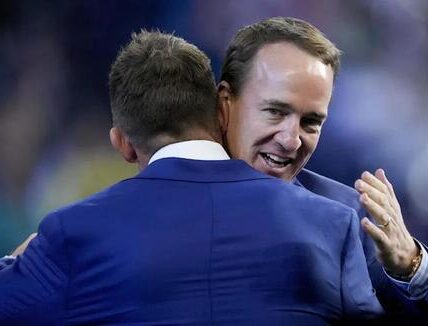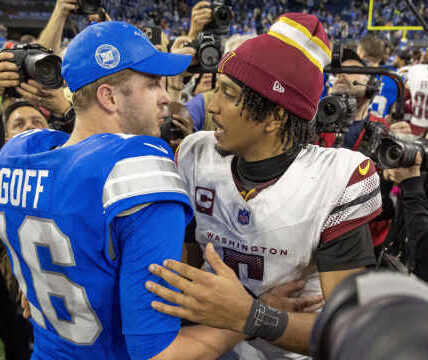Tom Brady’s role in the Commanders vs. Lions game will bring his conflict of interest to the forefront.
Tom Brady’s role as a minority owner of the Raiders and a broadcaster for Fox undoubtedly creates a conflict of interest. This issue is compounded by the fact that Brady is not just a passive investor; as the Las Vegas Review-Journal recently pointed out, the Raiders are “Tom’s show now.”
It intensifies further with Brady currently searching for a new head coach, adding a layer of complexity to his situation.
This becomes even more problematic on Saturday night, when Brady covers a game involving Lions offensive coordinator Ben Johnson, who is widely considered his top candidate for the Raiders’ head coach position.
In today’s world, many might not care about this conflict. That’s their right—if they are at least aware of it.
Those in the media who might downplay or overlook the conflict are aware of it. With millions expected to watch the Saturday night game Brady is covering, most of them won’t realize that Brady isn’t simply a neutral observer, but has a vested interest in hiring Johnson soon after Detroit’s season ends.
Fox has an obligation to inform viewers that Brady is part-owner of the Raiders, actively participating in the team’s coaching search, and recently interviewed both Johnson and Lions defensive coordinator Aaron Glenn for the job.
The audience deserves to know about the Raiders’ interest in Johnson and Glenn, so that Brady’s commentary on Detroit’s offense and defense can be viewed through that context. If Brady excessively praises Johnson and/or Glenn—or fails to criticize them—it could reflect his potential interest in hiring them, and the audience can better assess his remarks accordingly.
This is where Brady’s conflict of interest becomes apparent. As he comments on the game, balancing his duty to provide fair and honest opinions with his desire to avoid statements that could complicate his efforts to hire Johnson or Glenn—while possibly trying to help his cause—will create tension.
If it seems Brady is making excuses for Johnson or Glenn when things go poorly or excessively praising them when things go well, viewers will be able to scrutinize his words with full understanding of his situation.
The NFL and its teams have allowed Brady to hold both roles, even though the restrictions on his pre-game activities (no practice attendance, no involvement in production meetings, no access to team facilities) highlight the existing conflict. Eventually, other owners may decide Brady’s unique insight into the league, gained by calling multiple games annually, outweighs concerns over his “cool factor.”
Yes, the industry is full of conflicts that most fans are unaware of. Some broadcasters (including reporters) are represented by agencies that also represent players and coaches. Some reporters subtly favor their agent sources to maintain access to information.
This issue is significant, especially when most people are unaware of it. In this case, however, the media is well aware of Brady’s conflict.
Therefore, Fox has an obligation to disclose Brady’s connection to the Raiders before the game, so viewers understand how his comments might be influenced by his interests. Fox is aware of this, but the real question is whether they are willing to disclose it—particularly if Fox executives fear Brady might object.




